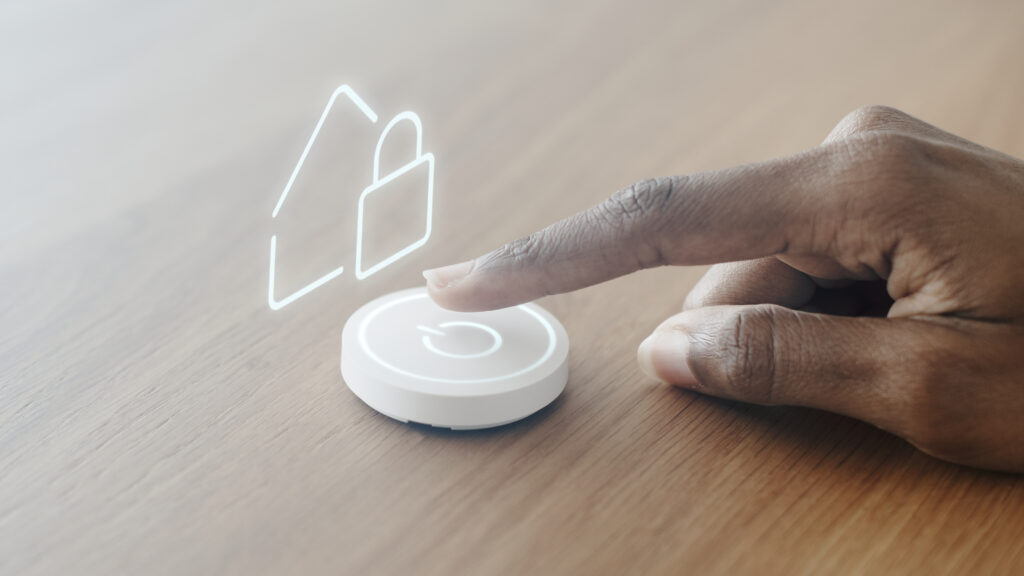In today’s rapidly evolving digital landscape, enhancing healthcare security has become a critical priority. The security industry has undergone significant transformations, and the integration of cloud access control systems is at the forefront of this revolution. This article delves into the evolution of the security industry and the impact of cloud access control on healthcare security, offering actionable insights for healthcare professionals seeking to fortify their security measures.

The Evolution of the Security Industry
The security industry has seen remarkable advancements over the past few decades. From traditional lock-and-key mechanisms to sophisticated biometric systems, the journey has been driven by the need for enhanced protection and efficiency. Initially, physical security was the primary focus, with CCTV cameras and security personnel being the mainstays. However, as technology advanced, the industry began to embrace digital solutions.
1. The Shift to Digital Security Systems
The introduction of digital security systems marked a pivotal shift. Access control systems evolved from simple card readers to more complex biometric and RFID (Radio Frequency Identification) technologies. These advancements allowed for more secure and convenient access management, reducing the risks associated with physical keys and cards.
2. Integration of IoT in Security
The Internet of Things (IoT) has further revolutionized the security industry. IoT-enabled devices can communicate with each other, creating an interconnected security network. This integration has enhanced the capability of security systems to monitor and respond to threats in real time, providing a more robust security infrastructure.
The Impact of Cloud Access Control on Healthcare Security
Cloud access control systems are transforming how healthcare facilities manage security. These systems leverage cloud technology to offer scalable, flexible, and efficient security solutions. Here’s how cloud access control is making a significant impact:
1. Enhanced Security and Compliance
Cloud access control systems provide healthcare facilities with robust security measures that comply with stringent regulations like HIPAA (Health Insurance Portability and Accountability Act). These systems offer real-time monitoring, automated alerts, and detailed access logs, ensuring that only authorized personnel can access sensitive areas and information.
2. Scalability and Flexibility
One of the key benefits of cloud access control is its scalability. Healthcare facilities, whether large hospitals or small clinics, can easily scale their security systems according to their needs without substantial infrastructure changes. The flexibility of cloud-based systems allows for seamless updates and integrations, ensuring the security measures are always up-to-date.
3. Cost-Effective Solutions
Implementing cloud access control systems can be more cost-effective compared to traditional security systems. With cloud-based solutions, there is no need for extensive on-premises hardware. This reduces the initial investment and ongoing maintenance costs, making advanced security accessible for facilities with limited budgets.
4. Improved Data Management
Cloud access control systems centralize data management, making it easier to track and analyze access patterns. This centralization helps in identifying potential security breaches and implementing proactive measures. Additionally, cloud storage ensures that data is secure and can be recovered in case of physical damage to the facility.
5. Remote Access and Management
Healthcare administrators can manage and monitor security systems remotely through cloud access control. This capability is particularly beneficial in emergencies where immediate action is required. Remote access also allows for real-time updates and troubleshooting, ensuring continuous protection.
6. Integration with Other Security Systems
Cloud access control systems can seamlessly integrate with other security measures such as video surveillance and intrusion detection systems. This integration creates a comprehensive security ecosystem that enhances the overall protection of healthcare facilities.
7. Enhanced Patient Safety
By ensuring that only authorized personnel have access to certain areas, cloud access control systems contribute to patient safety. This is crucial in environments like operating rooms, pharmacies, and data centers where unauthorized access could have severe consequences. Read More: Access Control Lists: 6 Key Principles to Keep in Mind
Conclusion
Enhancing healthcare security is imperative in today’s digital age, and the security industry’s evolution towards cloud access control is a significant step forward. These systems offer enhanced security, compliance, scalability, cost-effectiveness, improved data management, remote access, and better integration capabilities. If you’re interested in learning more about how cloud access control can benefit your healthcare facility or need assistance with implementation, please don’t hesitate to contact us. We are here to help you enhance security and protect your valuable assets.